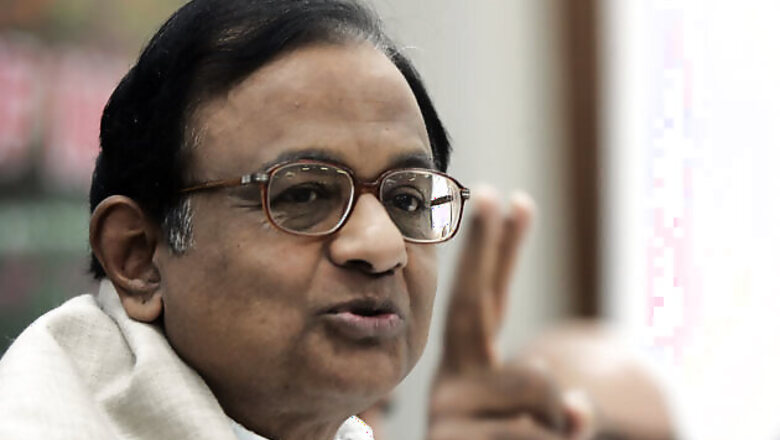
views
Joining debate with BJP's prime ministerial candidate Narendra Modi over partition, Finance Minister P Chidambaram, on MOnday, quoted excerpts from Maulana Abul Kalam Azad's book to say that Sardar Patel had agreed to the idea of division of the country before Nehru and Gandhi.
"Lord Mountbatten was extremely intelligent and could read the minds of all his Indian colleagues. The moment he found (Sardar Vallabhai) Patel amenable to his idea, he put out all the charm and power of his personality to win over the Sardar.
"As soon as Sardar Patel had been convinced, Lord Mountbatten turned his attention to Jawaharlal. Jawaharlal was not at first at all willing and reacted violently against the very idea of partition, but Lord Mountbatten persisted till step by step Jawaharlal's opposition was worn down," he said quoting at length from Azad's book 'India Wins Freedom'.
Chidambaram's observation came a day after Modi accused Congress of committing the "sin" of partition and ignoring other heroes of the freedom struggle at the cost of Nehru- Gandhi family.
"Mr Prime Minister, I am aware that it is not in your hands what you should say or not say. But the country wants to know who changed the geography of India. The village in which you were born was a part of Hindustan. Today it is not. Who changed the geography. Who broke this country into pieces?" Modi had said.
Chidambaram retorted by saying, "A fair reading of the... account (provided by Azad) will show that partition was forced upon the country due to the intransigence of Mohammed Ali Jinnah and Lord Mountbatten's plan to safeguard British interests."
Recalling the contribution of Azad, Chidambaram said, "He was an Indian and a Muslim. He was a nationalist, patriot and totally secular. More than anyone else he was able to foresee the consequences of the two-nation theory. He was a passionate advocate, until the very last, of the unity of India.
"He was able to reflect the true feelings of millions of people both within and outside the Congress party. He had always fought for the unity and independence of India and for love and brotherhood among all communities, particularly between Hindus and Muslims."
The government, Chidambaram said had awarded Bharat Ratna to Azad, the first Education Minister of independent India, posthumously in 1992.
Reading Azad's book, he further said, "When I (Azad) became aware that Lord Mountbatten was thinking in terms of dividing India and had persuaded Jawaharlal and Patel, I was deeply distressed. I realised that the country was moving towards a great danger. Now that Sardar Patel and even Jawaharlal Nehru had become supporters of partition, Gandhiji remained my only hope.
"...But when I met Gandhiji again, I received the greatest shock of my life, for I found that he too had changed. He was still not openly in favour of partition but he no longer spoke so vehemently against it. What surprised and shocked me even more was that he began to repeat the arguments which Sardar Patel had already used. For over two hours I pleaded with him but could make no impression on him."
Finally, Gandhi also agreed to the idea of partition, the resolution was passed by the AICC with 29 members for it and 15 against, Azad wrote adding, "even Gandhiji's appeal could not persuade more members to vote for the partition of the country!"




















Comments
0 comment